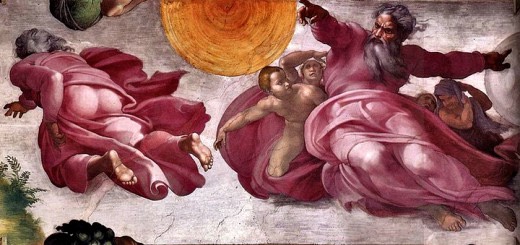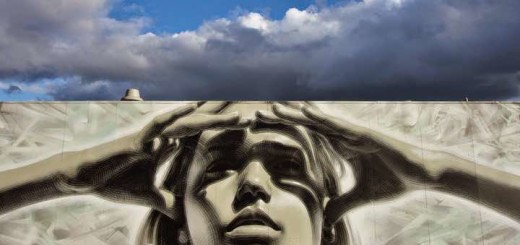Essere cristiani LGBT sulla strada per Emmaus
Sermone dalla pastora Michiko Bown-Kai* tenuto nell’East End United della Chiesa unita del Canada a Toronto il 6 giugno 2021, liberamente tradotto da Antonio De Caro
Unico Santo, veniamo da te per imparare e riflettere. Per coloro, fra noi, che hanno il cuore afflitto, possa questo tempo guarirci.
Per tutti noi qui riuniti, l’augurio è di stare vicini a te e alla nostra comunità in questo tempo; e che possiamo ricevere la forza per il ministero che tu ci hai chiamati a condividere per rendere questo mondo più giusto. Amen.
Buon Pride! Come cristiana queer, sono così grata di essere qui oggi, senza bisogno di difendermi, solo per pregare con voi. Ma oggi, viaggiando con questi discepoli lungo la strada per Emmaus, sono colpita dalla tensione di questo posto strano dove si incontrano il dolore e la Buona Notizia.
I know that Easter has passed since a while, but this is the place where we find ourselves, thanks to today's reading - Jesus was crucified, the movement dispersed, these people witnessed the assassination of a friend, in the worst possible way. You noticed that part of the Gospel (Lk 24.13-35) where the disciples say: "We had hoped ... that he was the one ...". They don't hope anymore. Their hope is dead.
We, LGBT+people, only could imagine how to be proud of who we are, because they told us that we had to be ashamed. The reason why we are proud, vibrating with beauty, is because shemale and color women have opposed the brutality of the police. We celebrate that Jesus is alive because he was executed by the state and, however, he has returned to live.
Resilience is a blessing that we know only because we have endured injustice. Therefore this is the tension that I highlight today -the fact that we know and see resurrection, the constant diffusion of new life, but only because we have also known death.
That's why I want to clarify it for those who are in the cry among you: I see you and I hope this prayer meeting will be an opportunity to honor your condition today. And in the midst of pain, my prayer is that you are blessed by the spirit that reminds you that you are degnat* of celebration, recognition and respect.
The road to Emmaus shows us that, even when we are not aware of it, Jesus is present with us, travels with us, and helps us to learn and grow. I find it interesting that Jesus does not feel at all the need to reveal himself to the disciples - when instead it seems that many of us have the desire to be called allies or activists, as if the label was necessary to commit.
To Jesus it is enough to be present. And they walk and speak. And this story reveals the meaning of the accompaniment, even in a completely literal sense, if we think that in Latin the word "companion" means "person with bread". Thus we understand that "company" does not only concern the trip or conversation, but sit and share the meal with someone.
When we celebrate the Eucharist together, we remember the Last Supper and Jesus' invitation to remember him in the simple gesture of breaking the bread. And in the moment of communion I wish to arouse another tension.
Two ideas to keep with us: that only Christ is all that we need and that this gesture of communion does not mean anything if we do not live it in a practical way in our daily life.
Here is the first point: in communion we receive a small piece of bread and say that it will support us. And that we will never be hungry until we are with Christ. And here we celebrate communion, that is, the truth that Jesus has embodied the infinite solidarity of God; The pain and evil of this world are known and shared by God who is always with us.
So, Amic*, listen to these words: Christ is present wherever you are, Christ is with you, the Spirit cannot be taken away from you and - all will always call you to heal you, fortify you and free you.
When they tried to use violence to reduce Jesus to silence, they failed to us: the power of a God who is entirely love is stronger. While I speak to you like this, I hear the echo of Romans 8, that is, that Christ is our way of knowing our God as the God of solidarity. And solidarity is where and how we understand a new life, which beyond the death caused by injustice we can love with courage and strength.
We can create new life, another world where everyone can know that they are children of God, saints and loved.
But there is also a second part: we see this new life only when the accompaniment, to be walking-with, becomes building-comunity-with, offering support and not only company. If the pain holds the disciples from seeing Christ, if pain is a barrier to the Spirit, it means that we have the spiritual obligation to create a world where people do not have to experience an unnecessary suffering that makes them unable to make the real experience of Christ in their life.
God calls us to live in Pride, which means much more than walking with others once a year. God calls us to accompany us, to bring each of the bread of others.
Therefore, given that we approach this provision of communion for the Sunday of Pride, I challenge all of us not to think that it is simply the altar where we celebrate gay weddings, but also the altar where we are pushed to make proposals on the residence communities or on the use of trans people or on who invite dinner at our house every evening, especially if we know that a huge number of young people without roof are LGBT+.
Communion does not only concern the sparkling atmosphere of the party, but also wondering how many minorities do not yet have access to clean drinking water. Communion does not concern the preparation of a showcase, corporate arrinism, the unconscious consumption made of rainbows, but means asking uncomfortable question, in our workplace, on those who are afraid that speaking clearly could cost him the opportunity to afford daily bread.
At this table we are nourished, we are nourished with the truth of God's permanent love -Così that we can accompany and create the radical change that this world has so desperately needed. Amen.
* This sermon was pronounced by Michiko Bown-Kai in June 2019, during a religious celebration for the month of Pride, at East End United, a service of the United Church of Canada open to LGBT+people. The reading of the Gospel was Luca 24.13-35 and this message was shared just before the community celebrated communion.
Michiko Bown-Kai is a pastora of the United Church of Canada passionate about social justice who has studied social justice and peace and political science studies at the University of Western Highit, before attending Emmanuel College with their Master of Divinity program. Recently it is operated in the land of the Haudenosaunee, Anishinabe and Neutral known as Cambridge, Ontario, which is part of the Haldimand Tract (Canada) treaty.
Original text: Companionnionhip: A Sermon for Pride Month






